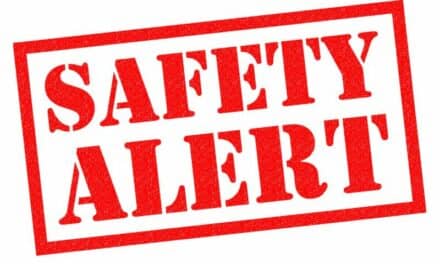“A day in the life” at practically any hospital in the world is very different now than it was even a few months ago—especially for those such as The Brooklyn Hospital Center in New York City, one of those handling patients at the epicenter of the COVID-19 pandemic in the United States. A recent profile in the New York Times described the harrowing and frightening conditions for the staff there as they cared for the flood of patients while trying their best to work despite shortages of supplies and equipment.
Yet there are instances of good news in the chaos. According to the Times article, a hospital official jokingly asked if he could trade unused federal test swabs for ventilators: “The next day, he said the hospital accepted 12 ventilators from the emergency management office, St. George’s University and a company, Comprehensive Equipment Management Corporation.”
Comprehensive Equipment Management Corporation (CEMC) is a medical device maintenance and supply company that works with hospitals currently at full capacity in responding to the COVID 19 pandemic in New York City. Recently, Joshua Leasure, vice president and executive director of business relations for CEMC, took the time to answer some questions for 24×7 Magazine about how the company is helping hospitals to cope with the crisis.
24×7 Magazine: Do you see a shortage of medical devices available to hospitals within the healthcare industry?
Joshua Leasure: Most definitely. Both hospitals and national health systems we work with have approached us with challenges they are encountering in acquiring medical devices and even maintaining some of their existing inventory. There is a shortage not only of equipment but also the consumables and parts for medical devices.
24×7: How is the COVID 19 pandemic affecting medical equipment management and maintenance at the hospitals you work at?
Leasure: We are having to get creative in utilizing every resource available to our hospital customers and our organization. Fortunately, with both onsite personnel and an equipment depot located elsewhere, we are able to pool resources.
24×7: What examples can you provide of actions taken specifically to address the increased equipment need as a result of COVID 19?
Leasure: Our team started by analyzing what equipment would see more use and what the hospital would need to add to meet the additional demand. We started with the regular supply chains from both OEM and third-party ISOs. Fortunately, CEMC has at its disposal a service and refurbished equipment depo where we supply hospitals nationwide.
By scaling back marketed medical device products and dedicating those resources to the hospitals we are contracted to support, we were able to provide resources that had depleted elsewhere in the industry. We also looked at stored equipment and parts available to make additional devices patient-ready without being dependent upon the exhausted market. Resources industrywide are finite, but I think careful planning and swift action aided in making additional medical devices available thus far.
24×7: What new challenges are the staff working within the biomedical engineering department facing as a result of the virus?
Leasure: The biomedical engineering staff are faced with challenges similar to the clinical staff. The increased patient census means more equipment has to be patient-ready and maintained so there are additional logistical measures. They are working in patient contact areas and dealing with devices going in and coming out of those areas so the infection control policies must be followed to protect both themselves and others within the hospital. Then there is their personal life, which has been disrupted.
New York City has quarantine restrictions in place, schools are canceled, home products are scarce, transportation is a concern for some, and family members are sometimes ill. Individuals are under an enormous amount of emotional and sometimes physical strain. We have increased communication with the staff within that area and are continually having conversations as to how things are going and the best means of proceeding. While just a small gesture, the company has been mailing in some home personal products for the staff and their families. Sometimes the most complex problems require a simple and practical solution.
24×7: Are there any comments you would like to add?
Leasure: Yes, at this challenging time we are increasingly dependent upon one another to address a difficult scenario. For every one person that is not available to assist, there is another working even harder to complete tasks that must be done. While this is true for all healthcare workers, support services such as clinical engineering staff are often the unsung heroes. Our administrative staff is working daily with the regional management team there and those managers and technicians are nothing short of extraordinary. They continue to trudge through daily to meet the daily demands that we are facing industrywide.
While policies, plans, procedures, and resources are necessary for success, it’s ultimately people that the success hinges on. I’m not surprised that these particular people are rising to the challenge. It’s the same staff that was featured in 24×7 years ago for their response to Hurricane Sandy. They’ve seen patients brought in from the Twin Towers falling, and they’ve been courageous through it all. I would like to send my admiration and appreciation to these HTM professionals and those like them that are facing the same challenge elsewhere in the United States.





